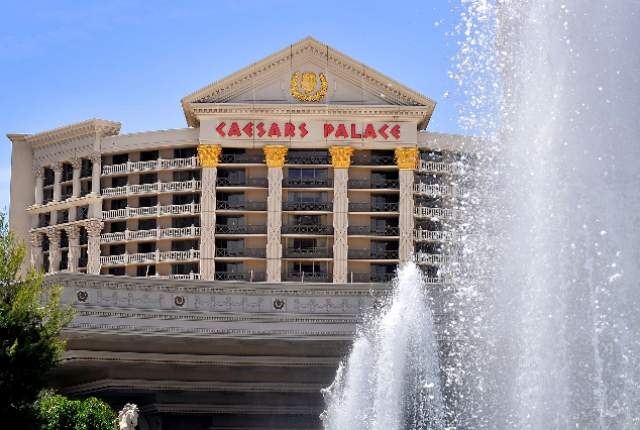Caesars asks judge to extend bankruptcy period until March
Caesars Entertainment Corp. asked a federal bankruptcy judge Thursday to extend the exclusivity date on the reorganization plan for its largest operating division to March 15.
In a statement, the company the extension would give the casino operator additional time to work out an agreement with second tier lenders who have not signed on to a plan that would convert Caesars Entertainment Operating Co. into a real estate investment trust and reduce the division's long-term debt by nearly $10 billion.
Caesars has gaming industry-high $22.6 billion in long-term dept, with some $19 billion attached to CEOC. The company placed the operating division into a Chapter 11 restructuring in January.
Caesars said 80 percent of the company's first lien creditors, representing $12 billion of debt, have signed off on the plan.
The company said it wants to "continue its ongoing efforts to seek consensus with its junior creditors while also pursuing a path to emergence consistent with agreed upon milestones." The reorganization plan provides for "enhanced recoveries" to junior creditors, the company said.
The bankruptcy, filed with the federal bankruptcy court in Chicago, covers just one Strip resort, Caesars Palace, but also includes Caesars Atlantic City, Harrah's Reno and more than a dozen regional hotel-casinos.
CEOC said its operations have continued uninterrupted throughout the financial restructuring process and that "business performance improved in the first half of 2015.
Caesars is battling with a group of creditors in a trial in front of the bankruptcy judge over the exact date CEOC went bankrupt. The ruling could determine whether the company's restructuring deal can go forward.
Creditors Appaloosa Management and other hedge funds said CEOC, went bankrupt on Jan. 12, when they filed an involuntary petition against the company in Delaware. That petition came three days before the company filed a voluntary $18 billion bankruptcy petition in Chicago.
The timing of the Chapter 11 filing is key to determining the validity of a $468 million cash lien that Caesars granted its senior lenders in October. The lien is a major part of the restructuring agreement.
Caesars wants to spin off CEOC into two companies; a REIT owning the real estate and buildings and an operating company leasing back the casinos. According to a securities filing, creditors will control the REIT's board of directors.
The plan calls for the operating company to pay the REIT $165 million in annual rent for Caesars Palace and $475 million per year in rent for all the other casinos combined. Both leases have escalator clauses after seven years that could increase operating company payments to the REIT.
The 15-year Caesars Palace lease has a five-year renewal option. Also, the operating company will be required to make $165 million per year in casino capital investments — $28 million at Caesars Palace and at least $85 million at other properties. The operating company will be reimbursed up to $78 million and retains right of first refusal to manage casinos the REIT acquires outside of Nevada.
Caesars' debt came from a $30.7 billion leveraged buyout by private equity firms TPG Capital and Apollo Global Management.
Contact Howard Stutz at hstutz@reviewjournal.com or 702-477-3871. Follow him on Twitter: @howardstutz




























